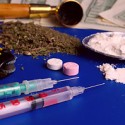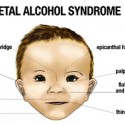Alcohol may fuel bad behavior during holidays
Survey says … alcohol may fuel bad behavior during the holidays with harmful effects that could extend way beyond a family feud.
Such behavior could involve hurtful or embarrassing words, endangerment of self and others (drunk driving), acts of violence and sexual antics at the workplace and in the home.
Such alcohol-induced acts may not surprise anyone.
What can raise eyebrows, perhaps, is the disconnect between what many people think they can tolerate (in terms of alcohol consumption) and the small amounts of alcohol it actually takes to push one beyond the bounds of civility.
In a nationwide online poll of nearly 2,000 adults, age 21 or older, 81 percent of the respondents felt holiday parties can be a hotbed for alcohol-induced bad behavior.
The poll was commissioned by the nonprofit Caron Treatment Centers, which operates a residential addiction treatment center in South Heidelberg Township.
So, what is the disconnect between facts and individual beliefs concerning alcohol consumption?
Fact 1: One drink could make someone severely impaired even if his or her blood alcohol level is technically legal, according to medical experts at Caron.
Fact 2: If a person consumes one drink every hour, he might not be legally intoxicated, but it still may be enough to trigger behavior he would otherwise not engage in.
Fact 3: The United States Department of Agriculture guideline for moderate drinking is up to one drink a day for women and up to two drinks a day for men.
In contrast, the Caron poll revealed the following views of people about alcohol consumption at a work party or family festivities:
•One-third (34 percent) of respondents felt it was acceptable to consume three or more drinks at a work party; percentage rate jumped to 45 if at a family gathering.
•23 percent said consuming three to six drinks is acceptable as long as people “can hold their liquor” at either work or family gatherings.
•11 percent felt that it is OK for people to drink as much as they want at a work party as long as they are not driving; percentage jumped to 22 at a family event.
“There is a neurotransmitter (glutamate) in the front of the brain that we rely upon for good judgment, and it can become quickly impaired with alcohol consumption,” said Dr. Joseph Troncale, medical director of Caron Treatment Centers.
“People who shouldn’t drink (alcoholics) or those with very low tolerance can quickly lose control and find themselves acting in ways that they wouldn’t normally,” he said. “That can lead to embarrassing or dangerous situations.
“Also, there is a high tolerance of social acceptablity for intoxication. This time of year (holidays), people are expected to engage in good cheer, fellowship and fun – and that’s often associated with drinking.”
A bright spot in the Caron poll is that 70 percent of the respondents said they would take action if they witnessed excessive drinking on the part of a co-worker during a holiday party at work.
But one of the problems with arranging transportation or the designated driver idea, according to Troncale, is that people often show up at parties coming from different directions.
“In reality, it often winds up that the least intoxicated person drives home,” he said. “There is a lot of looking the other way in these affairs – and people are often just afraid of confronting people.”
Troncale recommended that party organizers give guests permission not to drink by offering nonalcoholic beverages.
He also suggested advanced planning before going to a party.
source: Reading Eagle

